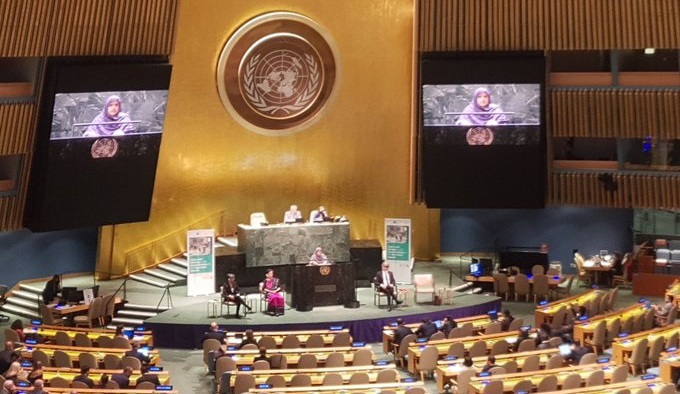When the city of Zigong needed room for new apartments for its rising middle class, it took the farms, fish ponds, orchards and houses of the farmers on its outskirts.
A decade later, the farmers say they got only a fraction of what would’ve been fair compensation. In some cases they got nothing at all. Having fought local officials for restitution, about 4,000 people here have appealed directly to top Communist officials in Beijing.
The petitioners are part of a growing nationwide property rights movement protesting land grabs, corruption and the high social cost of rapid economic growth.
They claim that corrupt officials illegally seized their land starting in 1993 and that police have harassed, detained and beaten those who protested.
China’s socialist-era property laws and local officials’ vast power have long enabled land grabs, known as chaiqian or “tear down and relocate.” And for much of the past decade, as China modernized and people enthusiastically traded in their old homes for new apartments with all the creature comforts, cities across the country seemingly couldn’t develop fast enough.
But attitudes are changing. In the first six months of this year, Beijing received more than 4,000 relocation complaints – exceeding the total in all of 2003, according to official statistics.
Many of the displaced are organizing protests and sharing their stories on Web sites and with reporters, and they’re gaining the support of lawyers and professors.
Sara Davis, a China researcher at Human Rights Watch in New York, calls it perhaps the biggest grass-roots movement in China since the pro-democracy protests of 1989.
“There is really growing dissatisfaction, growing unrest about this issue,” said Davis, who co-authored a report this year on urban evictions in China.
“There was certainly a time 10 years ago when people saw demolition and eviction as part of China’s progress. Now they see it as part of development out of control and official corruption.”
China’s State Council, or Cabinet, has ordered cities to cut down on redevelopment and stop the “uncivilized” eviction of homeowners. A constitutional amendment in March enshrined individual property rights for the first time.
Such moves signal the central government’s growing concern, but they alone aren’t likely to stop evictions because of weaknesses in the legal system, Davis said. China lacks independent courts, laws often are conflicting, and corrupt officials routinely suppress investigations or scare lawyers away from taking cases.
The farmers of Zigong filed suit against local officials in 1995. To this day, their case hasn’t been heard in court.
Having lost their land, many have been left homeless, jobless and dependent on meager government allowances. Today, they have little hope of getting their old lives back, or even of restitution, but they do hope to send a message.
“If we can win the case, it will be a warning to corrupt officials everywhere who have taken land from the common people,” said Liu Zhengyou, the author of the petition. “There are still lots of people in China who care about justice.”
Liu, 52, a contractor, was one of the most prosperous villagers. After he and his wife lost their three-story home in the land grab, the farmers designated him as their leader.
He said the central government was right to crack down on unfair evictions. “But any policy that is not in the favor of local officials – even if it means going against Beijing – they will not implement.”
Liu said officials in Zigong saw a chance in the early 1990s to promote commercial development and formed the Zigong High-Tech Manufacturing Development Zone.
Villagers living on the city’s outskirts saw trouble immediately. “Whenever you hear `high-tech,’ it means the wolf is coming,” Liu said.
In 1993, officials began seizing what eventually amounted to more than 2,500 acres of land occupied by some 30,000 people. The farmers were offered small living stipends and about $18 per square meter as compensation for their houses, but to buy another house in Zigong would cost nearly six times that amount, they said.
Many of the villagers resisted, saying the city hadn’t produced authorization from the central government.
Over the next several years, as the farmers pursued their case with local and provincial authorities, clashes with local officials escalated. Officials intermittently blocked roads and shut off water and electricity in the villages. Some farmers said their houses were torn down during days they were away.
At their offices in the city, Zigong officials refused to answer questions about the case, saying only that they were “aware of the matter.” They later declined to respond to written questions, saying they did not have the authority from higher-level officials to do so.
Despite early promises of high-tech jobs, almost all of the new construction has been apartments. About 2,000 farmers got jobs in township-owned factories in the mid-1990s, but most of those factories failed within a few years.
The farmers were left with no livelihood. Those who could left town to become migrant workers.
“There is no work,” said Lei Shuyan, 54, who grew fruits and vegetables on a small plot until seven years ago, when he and his family were pushed off. He does odd jobs and picks through trash for recyclables. He and his wife used to earn about $100 per month, enough to live comfortably, but now they survive on one-fourth of that and eat just two meals a day of porridge.
Since they lost their land, the couple and their son have lived in temporary government housing – dark, dank quarters where the roofs leak and cracks snake across the walls and where a dozen families may share a single bathroom.
Last summer, as officials were clearing the last parcels of the farmers’ land, Lei’s wife said she was among dozens who were arrested during several weeks of protests. The largest confrontation occurred July 4, 2003, when about 1,000 police descended on Hongqi Township and, using sticks and Tasers (crowd-control devices that give electric shocks), scattered a large gathering of protesters, according to Chinese media reports.
The displaced farmers say one man was driven to suicide. Ye Xinhua, 40, hanged himself in his house last July. He was under extreme stress, his widow said, because police detained her for protesting and officials harassed him while he was trying to sell fruit in town.
Davis, the rights advocate, said all the elements of the Zigong case are what people across rural China endure in the wake of land grabs.
One key difference, however, is that these farmers, led by Liu, have gained the attention of Chinese news organizations, overseas rights groups and legal scholars who are using the case as a lesson in the effects of relocation.
“This is China’s new pestilence,” said Zhai Xiaobo, a constitutional scholar in Beijing who’s helped with the Zigong case. “SARS was a terrible pestilence, but chaiqian (relocation) is more serious – and more lasting.”
Zhai and other observers worry about the potential for mass unrest. For centuries, land has provided most Chinese with sustenance. But according to the Chinese news weekly Economic Observer, in the last few years millions of farmers have been evicted in land grabs. Elsewhere in Sichuan, the massive Three Gorges Dam project has forced the relocation of 1.2 million people.
Liu fled to Beijing, where he writes letters and distributes information on land grabs. He lives on borrowed money and favors.
“China is not yet a country ruled by law. It is ruled by people,” he said. “Once you wield power, you wield everything.”
Source: Real Cities


